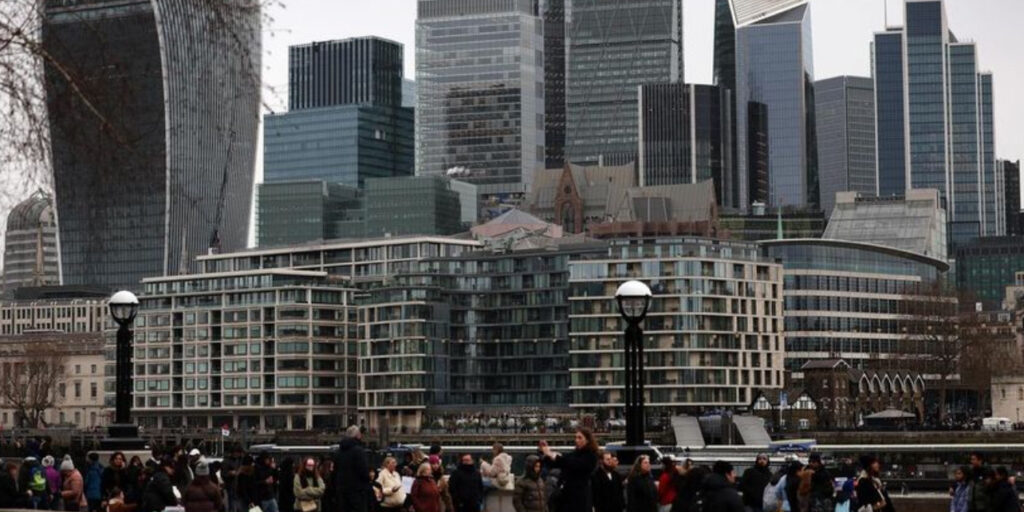The United Kingdom is projected to outperform its European counterparts over the next 15 years, retaining its position among the world’s top economies, according to the Centre for Economics and Business Research (CEBR).
By 2039, Britain and France are expected to remain in sixth and seventh place globally, respectively, while Germany, Italy, and Spain face declines in their economic rankings.
This forecast highlights the UK’s resilience amidst challenging global conditions and a shifting European economic landscape.
Positive Outlook Amid Challenges
The optimistic projection comes as a boost for Prime Minister Keir Starmer’s Labour government, despite recent data showing stagnant economic growth since Labour took office in July.
With survey data indicating a sluggish final quarter likely extending into 2025, the government’s long-term growth strategies aim to bring transformative changes.
Starmer’s agenda focuses on achieving the fastest sustained growth among G7 nations, emphasising planning reforms, increased house-building, and public investment. However, the CEBR warns that Britain’s economic challenges will persist, with much of its projected success attributed to weaker performances in key European economies rather than robust domestic growth.
Narrowing the Gap with Germany
Germany, currently Europe’s largest economy, is expected to see a diminished lead over the UK.
By 2039, Germany’s economy is projected to be only 20% larger than Britain’s, down from the current 31% gap.
Similarly, Britain is forecast to outperform France, becoming 25% larger in terms of output by the same year.
Tax Reforms and Long-Term Growth
CEBR acknowledges that Labour’s recent tax increases could suppress short-term activity growth but predicts a positive trend for the UK in the longer term.
The consultancy anticipates Britain’s trend growth rate to reach 1.8% over the coming years, positioning it favourably against its European peers.
Implications for Europe
While the UK’s outlook appears relatively positive, the forecast underscores a broader economic slowdown within the eurozone.
Major players like France and Germany are expected to face significant challenges, reshaping the region’s economic hierarchy.


